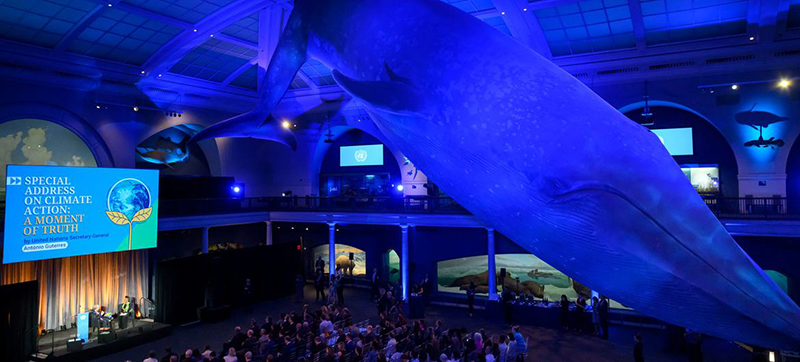 Planetary Crisis
Planetary Crisis
The triple planetary crisis: Global Foresight Report shows global shifts
Eight critical global shifts are accelerating a triple planetary crisis of climate change, nature loss, pollution and waste, according to the new Global Foresight Report produced by the UN Environment Programme (UNEP) and the International Science Council (ISC) released on Monday.
“The rapid rate of change, uncertainty and technological developments we’re seeing, against a backdrop of geopolitical turbulence, means any country can be thrown off course more easily and more often,” said UNEP Executive Director Inger Andersen.
The shifts include humanity’s degradation of the natural world, the rapid development of technologies such as AI, competition for natural resources, widening inequalities and declining trust in institutions.
Together, they are creating a so-called polycrisis in which global crises are amplifying and synchronizing – with huge implications for human and planetary wellbeing.
Signals of change
Alongside the eight shifts the report identifies 18 signals of change. These signals – identified by hundreds of global experts through regional and stakeholder consultations that included youth – offer a deeper glimpse into potential disruptions, both positive and negative, that the world must prepare for.
Tweet URL
Among them is growing demand for critical rare earth elements, minerals and metals, increasing calls for deep sea mining and beyond the stratosphere - space mining.
This poses potential threats to nature and biodiversity, could increase pollution and waste, and spark more conflicts.
The thawing of permafrost due to a warming climate, has also resulted in major environmental, animal and human impacts, due to the release of ancient organisms that may be pathogenic. It has already led to an outbreak of anthrax, a serious infectious disease caused by bacteria, in Russia’s vast Siberia region.
The rise of armed conflict and violence, alongside the human health and environmental impacts of forced displacement, are also identified in the report as key signals of change that must be anticipated.
Importance of foresight
Despite these emerging crises, the report also finds that adopting better foresight tools will be the best way to help the world anticipate future disruptions.
“Foresight provides a useful set of tools to step outside of short-termism to help identify future opportunities and risks provided that it is done in a truly pluralistic manner,” said Peter Gluckman, President of the ISC.
To ensure this pluralistic approach, the report recommends adopting a new social contract that engages a diverse range of stakeholders, including indigenous people, giving young people a stronger voice, and rethinking measures of progress to go beyond GDP.
“As the impacts of multiple crises intensify, now is the time to get ahead of the curve and protect ourselves from emerging challenges," said UNEP Executive Director Inger Andersen.
“By monitoring signals of change and using the foresight approach, the world can avoid repeating mistakes of the past and focus on solutions that can withstand future disruption,” she added.
Support Our Journalism
We cannot do without you.. your contribution supports unbiased journalism
IBNS is not driven by any ism- not wokeism, not racism, not skewed secularism, not hyper right-wing or left liberal ideals, nor by any hardline religious beliefs or hyper nationalism. We want to serve you good old objective news, as they are. We do not judge or preach. We let people decide for themselves. We only try to present factual and well-sourced news.







